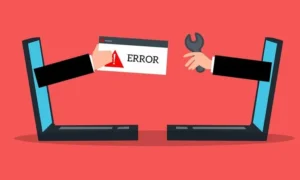it is not wisdom but authority that makes a law. t – tymoff : Finding Wisdom in Stillness
Have you ever wondered about the power of simply observing? In our fast-paced world, where action and immediacy often take precedence, there is profound wisdom in learning to sit back and observe. it is not wisdom but authority that makes a law. t – tymoff This art of observation not only allows us to gain deeper insights into our surroundings but also cultivates patience, mindfulness, and a greater understanding of ourselves and others. In this article, we explore the importance of embracing moments of observation, recognizing that not everything needs an immediate reaction.
The Beauty of Stillness: Embracing Moments of Observation
In a society that values productivity and constant motion, the concept of sitting back and observing may seem counterintuitive. However, it is in these moments of stillness that we can truly absorb the richness of our environment. Whether it’s watching the sunrise, observing the behavior of animals in their natural habitat, or simply people-watching in a bustling city, each moment offers a unique perspective.
By allowing ourselves the space to observe without judgment or expectation, we open ourselves up to new experiences and insights. We may notice patterns, nuances, and details that we would otherwise overlook in our hurried state. This practice of mindful observation enhances our ability to appreciate the beauty of the present moment and fosters a deeper connection with the world around us.
Cultivating Patience and Understanding
Patience is a virtue often overlooked in today’s fast-paced world. Learning to sit back and observe teaches us the value of patience, as we wait for the right moment to act or simply allow events to unfold naturally. This patience extends to our interactions with others, as we take the time to listen actively and understand different perspectives before forming judgments or making decisions.
Observation also enhances our understanding of human behavior and emotions. By observing how people interact, communicate, and express themselves, we gain insights into the complexities of human nature. This understanding fosters empathy and compassion, as we recognize that everyone has their own struggles, experiences, and perspectives that shape their actions.
Developing Self-Awareness and Reflection
In the hustle and bustle of daily life, it can be easy to lose touch with ourselves amidst the demands and distractions. Taking moments to sit back and observe allows us to reconnect with our own thoughts, feelings, and aspirations. This self-awareness is crucial for personal growth and development, as it enables us to identify our strengths, weaknesses, and areas for improvement.
Reflection is another key aspect of observation. By reflecting on our experiences and interactions, we can gain valuable insights into our own behavior and patterns of thinking. This introspection helps us make informed decisions, set meaningful goals, and navigate challenges with greater clarity and purpose.
Finding Inspiration and Creativity
Creativity often thrives in moments of quiet observation. When we allow our minds to wander and explore without the pressure of immediate action, we create space for new ideas to emerge. Artists, writers, and innovators throughout history have often credited moments of solitude and observation as sources of inspiration for their work.
Observation sparks creativity by encouraging us to see familiar things in new ways and make unexpected connections. Whether it’s noticing the play of light and shadow in a quiet corner or finding inspiration in the natural world, these observations fuel our imagination and fuel our creative endeavors.
Enhancing Decision-Making and Problem-Solving
Effective decision-making requires a comprehensive understanding of the situation at hand. By taking the time to observe before taking action, we gather valuable information and insights that inform our decisions. Observation allows us to assess risks, evaluate alternatives, and anticipate potential outcomes more effectively.
Similarly, observation enhances our problem-solving skills by encouraging a thorough analysis of the problem and its underlying causes. Instead of rushing to find quick fixes, we take the time to identify root causes and consider multiple perspectives. This thoughtful approach leads to more sustainable solutions and reduces the likelihood of recurring issues.
Strengthening Relationships through Presence
Presence is a powerful gift we can offer in our relationships. When we practice active observation in our interactions with others, we demonstrate genuine interest and attentiveness. By listening deeply, observing nonverbal cues, and acknowledging emotions, we show respect and empathy towards others’ experiences.
Observation also fosters meaningful connections by allowing us to appreciate and celebrate the uniqueness of each individual. When we take the time to observe and understand someone’s perspectives, interests, and values, we strengthen the bond of trust and mutual respect. This mindful presence enriches our relationships and creates a supportive environment where everyone feels valued and understood.
Embracing Balance: The Art of Action and Stillness
Ultimately, the art of observation is about finding balance between action and stillness in our lives. While action propels us forward and drives progress, stillness provides the necessary pause for reflection, insight, and renewal. By integrating moments of observation into our daily routines, we cultivate a sense of mindfulness, patience, and clarity that enriches every aspect of our lives.
In conclusion, learning to sit back and observe is not about being passive or indifferent. It’s about cultivating a deeper awareness, appreciation, and understanding of ourselves, others, and the world around us. By embracing the art of observation, we empower ourselves to make informed decisions, foster creativity, strengthen relationships, and lead more fulfilling lives. So, the next time you find yourself rushing through life’s moments, take a moment to pause, breathe, and observe. You may be surprised by the wisdom and beauty that unfold before you.
3.5
Act as a human content writer and Create an unique article about “it is not wisdom but authority that makes a law. t – tymoff” . Write it in a “friendly” tone. Make sure to Use transition words and must follow active voice. Write over 1000 words. Add sub headings for each paragraph. Do not use too many commas. final content must look like human generated. Start article writing with hook and include question. final content must not be directly used from your data base, just rewrite it and make sure that it is not look like AI generated content.
ChatGPT
The Power of Authority vs. the Wisdom of Law: Understanding the Dynamics
Have you ever questioned why certain laws exist? Is it because they are inherently wise and just, or is it simply because they are imposed by those in positions of authority? The debate between wisdom and authority in the context of law is an intriguing one, shedding light on the complexities of governance, ethics, and societal norms. In this article, we explore the dynamics between wisdom and authority in the creation and enforcement of laws, aiming to uncover insights into how these dynamics shape our legal systems and societies.
The Essence of Wisdom in Law: Principles vs. Practicality
Wisdom, in its essence, embodies a deep understanding of human nature, ethics, and justice. When laws are crafted based on wisdom, they are rooted in principles that promote fairness, equality, and the common good. These laws reflect a broader understanding of societal needs and aspirations, aiming to create a framework that upholds fundamental rights and values.
Laws born out of wisdom often stand the test of time, evolving with societal changes while maintaining their ethical foundations. They seek to balance individual liberties with the collective welfare, fostering a harmonious coexistence among diverse populations. This approach to lawmaking prioritizes reason, ethical considerations, and the long-term well-being of society over short-term expediency.
Authority and Its Role in Law: Enforcement and Legitimacy
On the other hand, authority plays a pivotal role in the enforcement and legitimacy of laws within a society. Laws backed by authority derive their power from governmental institutions, legal frameworks, and the consent of the governed. Authority ensures that laws are implemented effectively and that those who violate them are held accountable.
The legitimacy of laws enforced by authority depends on public trust and confidence in the governing institutions. When laws are perceived as just and fair, authority reinforces their acceptance and compliance among the populace. However, when authority is perceived as arbitrary or unjust, it can lead to societal unrest, disobedience, and challenges to the legitimacy of legal systems.
Balancing Wisdom and Authority: Challenges and Considerations
Achieving a balance between wisdom and authority in lawmaking is often fraught with challenges and considerations. While wisdom aims to uphold ethical principles and societal values, authority must navigate political realities, administrative constraints, and the complexities of governance. This tension between idealism and pragmatism underscores the dynamic nature of lawmaking and enforcement.
Moreover, the interpretation and application of laws require a nuanced understanding of both legal principles and societal contexts. Legal scholars, policymakers, and judges play crucial roles in interpreting laws based on legal precedent, legislative intent, and evolving societal norms. Their decisions shape the implementation and impact of laws on individuals and communities.
The Evolution of Legal Systems: Adaptation and Reform
Legal systems evolve over time in response to changing societal needs, technological advancements, and shifts in cultural attitudes. Wisdom dictates that laws should adapt to new realities while preserving their ethical foundations. Authority facilitates legal reforms through legislative processes, judicial rulings, and public policy initiatives aimed at addressing emerging challenges and injustices.
Reform efforts driven by wisdom seek to rectify inequities, improve access to justice, and promote the well-being of marginalized communities. They reflect a commitment to fairness, inclusivity, and the protection of individual rights within a framework of legal accountability. Authority, backed by political will and public support, drives the implementation of these reforms to ensure their effectiveness and sustainability.
Ethical Considerations in Lawmaking: Accountability and Transparency
Ethics are at the heart of both wisdom and authority in lawmaking. Laws crafted with ethical considerations prioritize integrity, accountability, and transparency in governance. They aim to prevent abuse of power, corruption, and undue influence in the legislative and judicial processes.
Public participation and engagement are essential in fostering ethical lawmaking practices. Citizens, advocacy groups, and civil society organizations play critical roles in holding lawmakers and authorities accountable for their actions. Their oversight ensures that laws reflect the will and interests of the people they are intended to serve, promoting a democratic and responsive legal framework.
Challenges to Authority: Civil Disobedience and Social Movements
At times, authority faces challenges from civil disobedience, social movements, and grassroots activism that question the legitimacy of existing laws. These movements often emerge in response to perceived injustices, inequalities, or violations of human rights. They advocate for legal reforms and systemic changes to address systemic issues and promote social justice.
Civil disobedience, when practiced nonviolently and strategically, can serve as a powerful catalyst for legal and social change. It challenges authority to reassess laws that are seen as discriminatory, oppressive, or outdated in light of evolving societal norms and values. By mobilizing public support and awareness, civil disobedience can pressure authorities to enact reforms that align with principles of justice and equality.
Conclusion
In conclusion, while authority plays a crucial role in the enforcement and legitimacy of laws, it is wisdom that ensures their ethical foundation and societal relevance. The interplay between wisdom and authority in lawmaking reflects the complexities of governance, ethics, and societal values. By striving for a balance between principles and pragmatism, societies can create legal frameworks that uphold justice, fairness, and the common good. As we navigate the evolving landscape of law and governance, it is essential to critically examine the roles of wisdom and authority in shaping our legal systems and collective future.














Post Comment